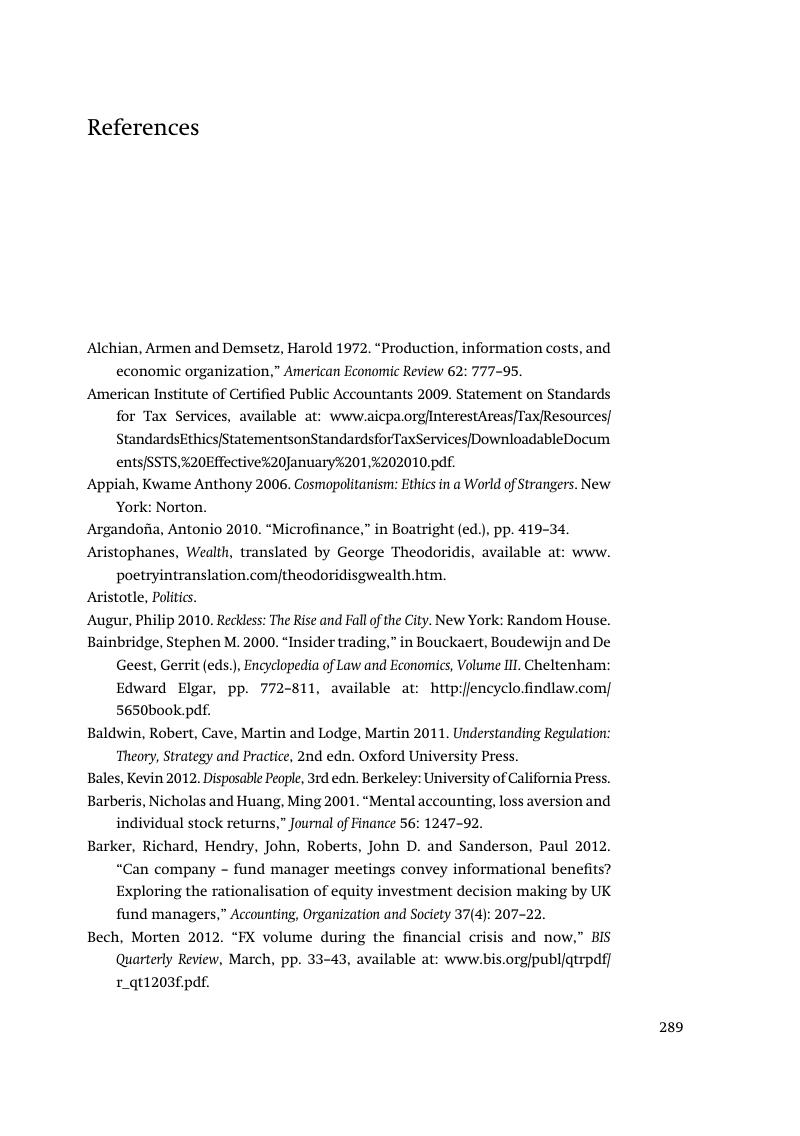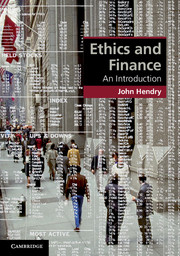Book contents
- Frontmatter
- Contents
- Preface
- Acknowledgements
- 1 Opening case study: the financial crisis
- 2 Introduction
- 3 Ethical foundations
- 4 The financial system
- 5 Lending and borrowing: where finance meets ordinary people
- 6 Trading and speculation: the ethics of financial markets
- 7 Agency and accountability: managing other people’s money
- 8 Products, promotion and client relationships
- 9 Financial reporting and corporate governance
- 10 Epilogue: the ethics of financial regulation
- Glossary
- References
- Index
- References
References
Published online by Cambridge University Press: 05 June 2014
- Frontmatter
- Contents
- Preface
- Acknowledgements
- 1 Opening case study: the financial crisis
- 2 Introduction
- 3 Ethical foundations
- 4 The financial system
- 5 Lending and borrowing: where finance meets ordinary people
- 6 Trading and speculation: the ethics of financial markets
- 7 Agency and accountability: managing other people’s money
- 8 Products, promotion and client relationships
- 9 Financial reporting and corporate governance
- 10 Epilogue: the ethics of financial regulation
- Glossary
- References
- Index
- References
Summary

- Type
- Chapter
- Information
- Ethics and FinanceAn Introduction, pp. 289 - 300Publisher: Cambridge University PressPrint publication year: 2013

